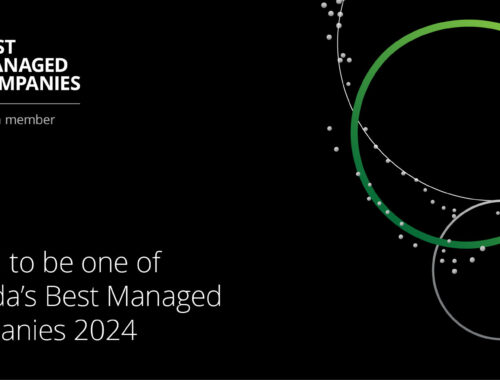Women in Engineering:
Rachel Cardone – Manager of Purchasing at MDS Aero Support Corporation

Rachel Cardone is a graduate of the Mechanical Engineering program at the University of Ottawa. She began her career at MDS as an Applications Engineer working on database design and refinement as well as designing graphical user interfaces. From there, she moved into the Instrumentation group where she integrated measurement circuit wiring with data systems and gained some extensive installation and commissioning experience at various job sites around the world. Rachel later joined the Business Development team as an Estimator where she had the task of estimating the costs for multi-million dollar projects the company was bidding on. Now Rachel is the Manager of Purchasing.
Rachel credits her parents for pushing her towards engineering as a career choice. “My dad was an Engineer,” she says. “He told me ‘you better throw that one in’ as a choice on my application form when I was applying for university programs. I did, now here I am.” Growing up, she always thought of engineers as people who build bridges – but that was about it.
Rachel recognizes that the engineering career path she initially chose has taken her many places that she likely wouldn’t have had the opportunity to explore. After joining MDS, “I had all these opportunities to travel, to meet people, to go to different countries,” Rachel explains. “It’s taken me a lot of places. I’ve really enjoyed it.”
As for young girls and women interested in a career in STEM, Rachel stands firm in her belief that there are opportunities everywhere, “You never really know where things are going to end up,” she says. “Stick with it. The sky’s the limit.”
A parent’s occupation can have an impact on a child’s career path later in life, especially for females. A 2017 working paper by the University of Arkansas studied gender gaps in perceived mathematical ability and the role of parental occupation. Results showed that math performance, perceived math ability, and the parent’s job in a STEM field were three factors that significantly affected the probability of majoring in a STEM field in college or university. An interesting outcome of the study showed that “most of the observed positive effects of having a parent in a science-related occupation seem to be concentrated among females.”1
Additionally, if a parent has a job in a STEM field, this can positively impact their daughters’ perceived ability and confidence in the subjects of math and science in school. The perceived ability gap between male and female students actually starts quite young. Observing the results of Ontario’s EQAO testing in mathematics over four years demonstrates that males and females perform at almost exactly the same level in Grades 3 and 6, with the majority of students performing at or above the provincial standards.
However, their attitudes towards their mathematical ability can vary by 14-18%. A student questionnaire in the 2017-2018 year showed that only 49% of female Grade 3 students agreed with the statement “I am good at mathematics” compared to the 63% of male students. This was the result despite the fact that 60% and 61% respectively were performing at or above the provincial standard. Unfortunately, the confidence gap only increases for Grade 6 students. By the end of high school, most female students are no longer enrolled in applied or academic math courses.
These studies prove the importance of parental role models as well as confidence in inspiring girls to pursue a career in STEM later in life.









